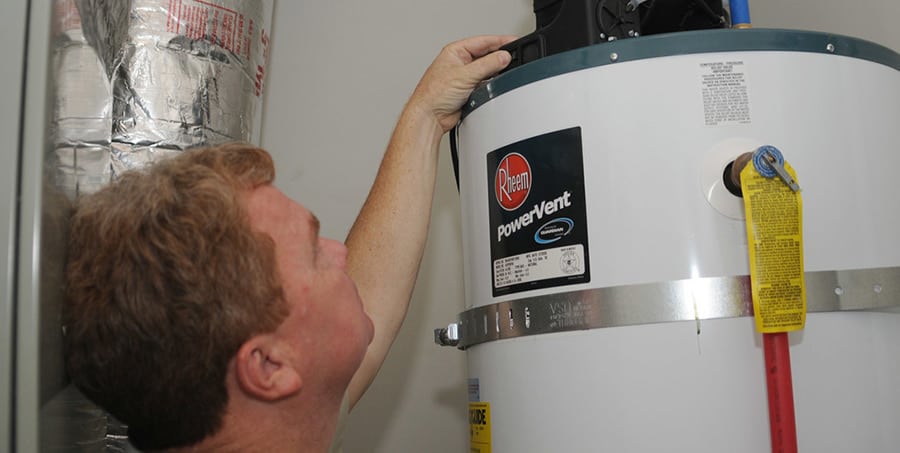Have you been looking for guidance around The Importance of Water Heater Maintenance?

A water heater is among the most crucial fundamental appliances that can be located in a home. With water heaters, you don't need to undergo the stress and anxiety of home heating water by hand each time there is a requirement to take a bath, do the laundry, or the dishes. Nevertheless, there is constantly a possibility that your hot water heater would certainly break down just like the majority of mechanical devices.
It is important to keep in mind any little malfunction and also tackle it quickly prior to points get out of hand. The majority of times, your water heater starts to malfunction when there is a build-up of debris as a result of constant usage. As a preventative measure, routine flushing of your hot water heater is suggested to avoid sediment accumulation as well as avoid useful failure.
Usual hot water heater emergency situations as well as how to handle them
Dripping water heater container.
In this circumstance, you need to transform off your water heating system, allow it to cool down, and also carefully look for the resource of the trouble. At times, all you need to do is to tighten up a couple of screws or pipe connections in cases of small leaks. If this does not function and also the leakage continues, you could require to use the solutions of a specialist for a suitable substitute.
Fluctuating water temperature level.
Your water heating system could begin creating water of various temperatures normally ice cold or hot warm. There could be a demand to change either the heating or the thermostat device of your water heating system.
Insufficient hot water
It may be that the water heater can not sustain the hot water need for your house. You can upgrade your water heating system to one with a bigger capacity.
Stained or stinky water
When this occurs, you require to understand if the problem is from the water or the tank source. If there is no funny scent when you run cool water, then you are certain that it is your water heating unit that is faulty. The odiferous water can be caused by rust or the accumulation of microorganisms or sediments in the water heating unit tank.
Conclusion
Some property owners ignore little caution and minor faults in their hot water heater system. This just causes more damage as well as a possible complete breakdown of your home appliance. You ought to take care of your hot water heater mistakes as quickly as they come near prevent even more expenditures as well as unnecessary emergency troubles.
With water heating units, you do not require to go via the anxiety of heating water manually every time there is a requirement to take a bathroom, do the laundry, or the dishes. Your water heating system might start generating water of various temperature levels usually ice cool or hot warm. It might be that the water heating unit can't support the hot water need for your home. If there is no funny odor when you run cold water, after that you are certain that it is your water heating unit that is faulty. The stinky water can be triggered by corrosion or the buildup of microorganisms or debris in the water heater storage tank.
Common Water Heater Issues and What You Should Do
What Type of Water Heater Do You Have?
Before we begin it’s first important that you identify the type of water heater you have on your property. There are two main types of water heaters out there: conventional and high efficiency.
Both of these types of products typically use either gas or electricity to heat power. There are also solar water heaters that use a thermal collector on the roof or yard to heat the water.
While these models are not as common, they can cut heating costs in half. In this article, we will focus on conventional and high efficiency.
How Do My Electric and Gas Water Heater Work?
Though they look similar, electric and gas water heaters work very differently. It’s important to know their basic function because often problems can be specific to the heating source.
In the electric model, a thermostat on the side of the machine detects the temperature of the water in the tank. When the temperature needs to rise electricity flows to a heating element suspended in the water.
Gas models also use a thermostat device — typically with a mercury sensor at the tip and an additional sensor called a thermocouple. The thermocouple detects whether the pilot light is on and controls the flow of gas.
When the thermostat drops below the appropriate level gas is released which becomes ignited by the pilot light. The flame heats the bottom of the water tank which causes hot water to rise and cold water to drop.
This natural circulation continues until the water reaches the desired temperature. Then, the thermostat triggers the gas control valve to shut off the flow of gas.
What Are the Most Common Issues and How Do You Fix Them?
https://happyhiller.com/blog/common-water-heater-issues-and-what-you-should-do/

We had been made aware of that write-up on Is Your Water Heater Leaking? from an acquaintance on our other web property. Are you aware of somebody else who is involved in the subject? Feel free to promote it. I value reading our article about The Importance of Water Heater Maintenance.
Call